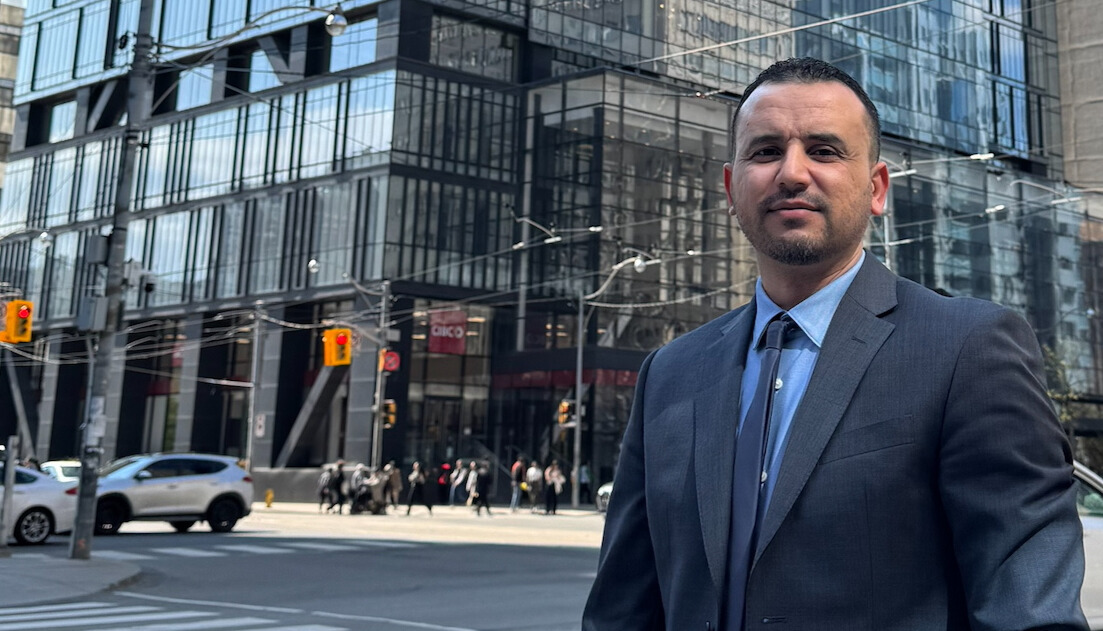
Dr. Ali Elhouni is an Anesthesiologist with Niagara Health.
Larger centres were among those competing for his skills, but in the end he chose Niagara Health.
“What stood out here was the balance — I could grow as a physician while also having the time and support to enjoy life outside of work,” says Dr. Elhouni, who joined Niagara Health last year. “The team feel, the flexibility and the welcoming culture made it clear this was the right place.
That sort of choice doesn’t happen by accident. Niagara Health has spent years reshaping its Anesthesiology program to make it more attractive to specialists, led by Dr. Don DuVall, Chief of Anesthesiology.
“We redesigned the on-call schedule, introduced more flexibility with part-time options and expanded our Anesthesia care team including with Anesthesia Assistants,” DuVall says. “We also standardized equipment in our operating rooms so physicians know they’re working with modern, consistent tools. These changes have helped us build the kind of environment people want to join — and stay in.”
At one point, Niagara Health had dropped to about 75 per cent of normal surgical capacity as retirements, attrition and a national shortage all hit at once.
“It was a tough stretch for us and for our teams,” DuVall says. “But we knew we had to take a hard look at our structure and make changes.”
Those changes worked. In addition to new flexibility and support, the department created a work culture where Anesthesiologists start and finish on time, and where roles can be tailored to different stages of a physician’s career.
“We’ve built a team-oriented environment that values flexibility, fairness and support — and that’s helped us stand out in a very competitive space,” DuVall says.
The effort has paid off. Over the summer, four new Anesthesiologists joined Niagara Health, bringing the department back to full strength and restoring 100 per cent of scheduled surgical capacity. That means patients have reliable access to surgeries, obstetrics, chronic pain services and after-hours coverage across all sites.
In Welland, the stronger team is supporting a shift toward more day surgeries, a model that reduces strain on both physicians and nurses while keeping services in the community.
Niagara Health’s achievement also stands out against a provincial backdrop. Ontario is facing a shortfall of about 300 Anesthesiologists by 2030, and while Niagara Health has hired more than 40 over the past decade, recruitment and retention remain an ongoing challenge.
“We’ve had to be creative, but the fact that we’re fully staffed again shows it’s possible with the right strategy,” DuVall says.
For DuVall, the achievement reflects a culture change as much as a recruitment strategy.
“We’ve built a supportive, sustainable team that can deliver care across the region,” he says. “That’s something I’m very proud of.”
After 10 years as Chief of Anesthesiology, DuVall is preparing for retirement, but says the department’s current strength is one of the most rewarding outcomes of his career.
“None of this would’ve happened without strong support from hospital leadership, who backed us every step of the way,” he says.
For Elhouni, it confirms his decision to choose Niagara.
“Here you get variety and challenge, but also flexibility and balance,” he says. “Niagara Health offers a strong variety of cases and opportunities to work across multiple sites. The variety of cases keeps the work interesting.”
As a general Anesthesiologist with fellowship training in thoracic and airway anesthesia, Elhouni says the work at Niagara Health aligns closely with his training.
“Recruitment is about more than a contract,” he says. “It’s about finding a community where you want to stay.”

